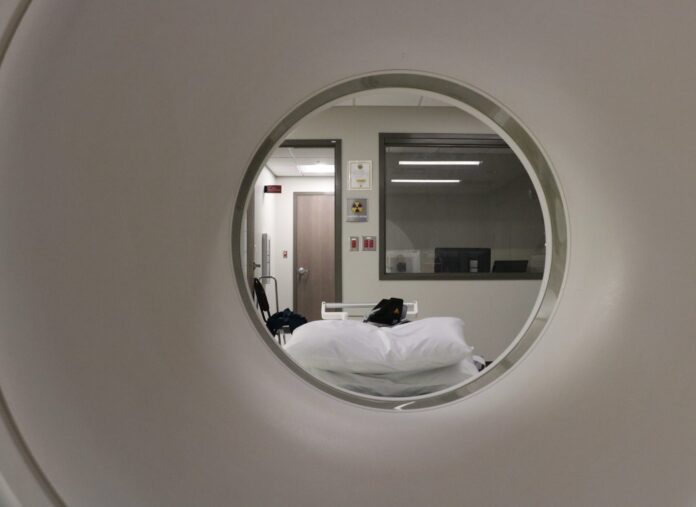That’s because of the whiplash created by the swift passage of the “One Big Beautiful Bill Act” despite inter-party disagreements, which President Donald Trump signed on July 4 The federal reconciliation bill aimed at reducing taxes for some and increasing federal spending on the U.S. military and border security came at the price of changes to federal healthcare funding that affect hospitals and Medicaid eligibility.
As partisan disputes boil, it’s still unclear how new federal law will impact Medicaid in Virginia
Cheryl Roberts, Virginia’s Medicaid Director, briefed members of Virginia’s Joint Commission on Healthcare about the future landscape of health insurance and hospital funding.
Of Virginia’s roughly 1.9 million people on Medicaid, those most estimated to be affected, Roberts said, are the over 600,000 that became eligible since Virginia expanded its program in 2018. They will become subject to work requirements and twice-yearly verification for coverage.
She said the eligibility criteria includes work, community service, education or a combination of these things as long as it amounts to 80 hours per month. What’s still unclear, she said, is what the federal government might deem to fit those requirements more specifically with regards to community service and education.
Roberts did surmise, however, that the additional verifications will pose challenges for the Department of Social Services and localities to process.
“Without question. That’s going to be hard on (them),” she said.
Del. Rodney Willet, D-Henrico, noted how difficult navigating the paperwork can be for some recipients paired with the additional workload on government workers.
Roberts said that the Virginia Department of Medical Assistance services is going to focus on streamlining the process as much as it can and to make electronic options available. But she estimates half of the verification process is what “we’re going to have to figure out.”
She emphasized that like lawmakers seeking to understand potential and expected impacts, her department is also operating with a lack of clarity for now.
“We do not have [Centers for Medicare and Medicaid Services] guidance for 90% of this, and that’s important,” Roberts said. “When I say ‘we don’t know’ — we really don’t know yet.”
As the reconciliation bill was fast-tracked through Congress over the summer, hospital associations in numerous states co-signed a public letter warning how funding changes to hospitals would negatively impact their abilities to remain open in some areas or face service cuts in others.
On Wednesday, Roberts didn’t share a concrete number, but she acknowledged that hospitals stand to lose billions of dollars. Del. Willett had noted an estimate of billions to which Roberts replied: “yes.”
“We give the hospitals billions of dollars, so the decline would be billions,” she added.
State Sens. David Sutterlein, R-Roanoke, and Chris Head, D-Botetourt, noted how constituents in Head’s predominantly rural district often receive healthcare from facilities in Sutterlein’s. As Sutterlein’s district includes urban and suburban areas like Roanoke and Salem, they questioned how the eligibility would work for hospitals there.
“There is a foreboding fear among all of the hospital administrators that I’m in contact with,” Head said. “It is going to be critical for us to come up with a plan to triage.”
Such concerns were also relayed by Ballad Health chief operating officer Eric Deaton in a recent call with the Mercury.
As the hospital chain has several rural facilities in Southwest Virginia and Tennessee, Deaton said he wonders how states are going to be able to respond. In the meantime, he said his hospital chain will look inward at how it can adjust and stay connected to federal lawmakers.
“You’ve got two opportunities (to make up for funding loss) — either increase market share revenue or you decrease your cost,” Deaton said.
In other words, consumers with private insurance could see rising rates to compensate for care, or certain services at some hospitals could be scaled back or scrapped.
As uninsured people are more likely to put off care until emergencies arise, the cost of the care is absorbed by hospitals, who periodically negotiate with private insurers.
Deaton said hospital chains like Ballad are exploring leaning into telemedicine where possible and are in conversations with Virginia and Tennessee’s congressional delegations about what future federal action could undo or soften the blow of this summer’s reconciliation bill. While Congress’ bill passed earlier this month, the changes to hospital funding don’t kick in until 2028 and changes to Medicaid for patients begin in 2027.
“This is not the last bill that Congress is going to pass,” Deaton said.
In the meantime state lawmakers around the country must contend with how federal changes will affect their constituents.
Price looks forward to more concrete data that she and her 139 colleagues can work with come next year’s legislative session — or sooner should lawmakers reconvene for a special session.
“We’re here in summer. We’re starting to think about what legislation could look like for the next session,” she said. “But we’re kind of flying in the dark right now.”
NEWSLETTER SIGNUP
Subscribe to our newsletter! Get updates on all the latest news in Virginia.



